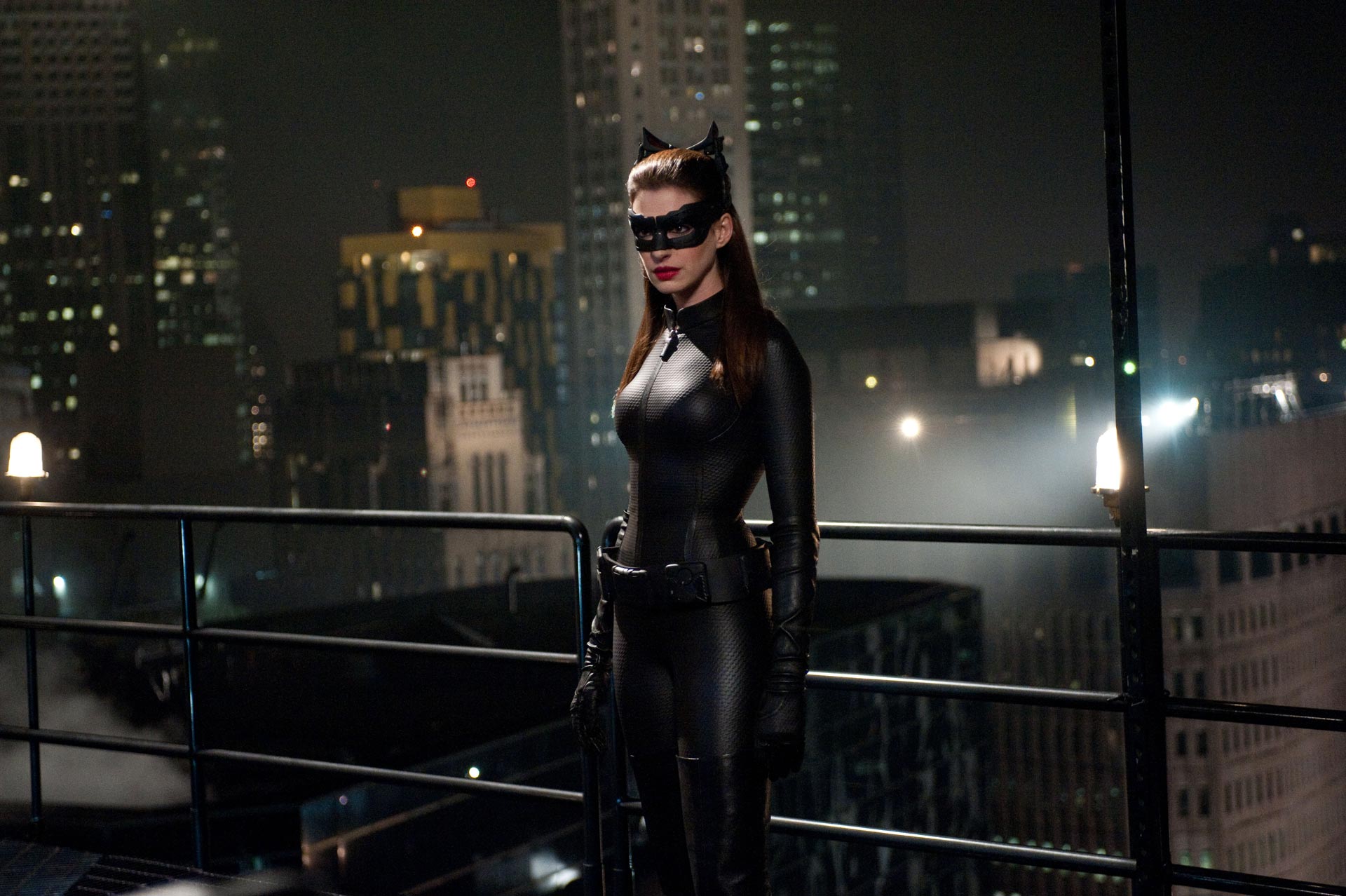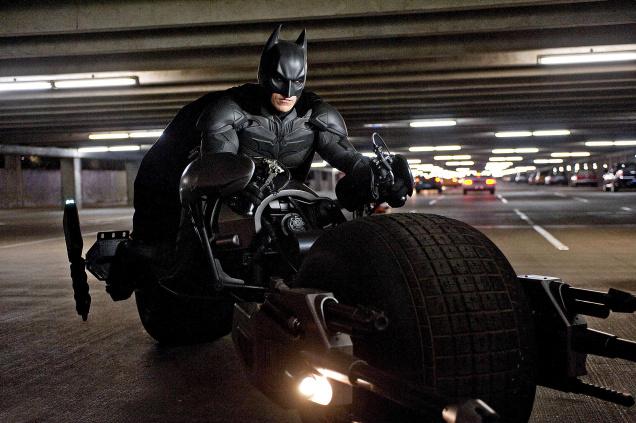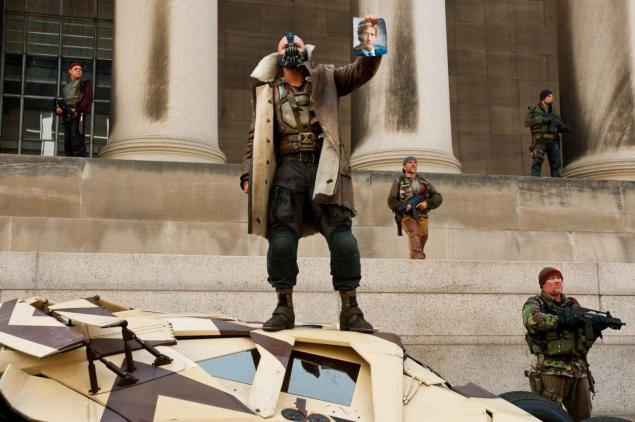|
It has been eight years since Batman (Christian
Bale) took the blame for the death of Gotham's district attorney Harvey
Dent.
As Batman is now an outcast to the city, Bruce Wayne has become a
recluse,
rarely seen in public and succumbing to the multiple injuries he has
endured as
The Caped Crusader. Yet when Commissioner Gordon (Gary Oldman) is
wounded,
stumbling upon the sewer hideout of a masked villain named Bane (Tom
Hardy),
Batman is urged to return. Honest cop John Blake (Joseph Gordon-Levitt)
persuades Bruce to don the mask again, and is given some new toys
courtesy of Lucius Fox (Morgan Freeman). This is against Alfred's (Michael Caine)
wishes, because
he wants to Bruce to move on with his life. A lot of Bruce's wealth has
gone to
waste, due to Gotham's economic downfall when it was meant to be
invested into
clean energy device, organised by Miranda Tate (Marion Cotillard).
However,
Bruce is also the target of economic fraud, courtesy of a thief in
Selina Kyle
(Anne Hathaway), who is intertwined with a businessman named Daggett
(Ben Mendelsohn).

The
Dark Knight Rises,
the third and final Batman film directed by Christopher Nolan, is alone
a
gripping final chapter but equally an outstanding means of adjoining
all three
films in the series together. The success of the previous film lay in
transcending the comic book world into a gritty crime story. Nolan
contrasted
the tactility of a post 9/11 universe with the chaotic and
unpredictable
torment of a clown figure. There is understandable hype about the
quality of
this film, considering the absence of the Joker here. The narrative
could not
be described as tidy but neither is it as over populated with
characters or as
senseless as some have recently claimed. There are numerous threads
being
upheld, some of which are only clarified as the film progresses and
there's
some rushed expositional dialogue used to fill in gaps in the story. It
is essential to have some knowledge of the
previous films because there are huge, surprising ties to both the
first and
second movie. More positively however, the film is briskly paced and
never
dull. It's an incredibly intense film, too dark and violent for small
children,
but never without a sense of purpose. Nolan has stated that this
episode is
specifically concerned with pain. In
a screenplay by Nolan and his brother Jonathan, this is most tangible
through
both the physical and mental scarring of all the characters. Bruce's
reclusiveness stems from losing Rachel Dawes but he is also physically
distraught from the numerous injuries he has endured as Batman.
Similarly,
Alfred remembers the loss of Bruce's parents. Their death drives him
not to let
his master purge under his self-loathing and nihilistic outlook by
embracing
Batman again and using his alter ego as an outlet for death.

Gotham City is also like a character in the story
because it is tested physically and economically by Bane. Bane's plan
is not to
outright destroy the city, but to isolate it and to test its physical
and
economical duration. The film could be called nostalgic in the way that
it
references any number of periods that suffered under the weight of
physical and
economical repression. The French Revolution, including Charles
Dicken's novel
A Tale of Two Cities (1859), is a huge inspiration for the film, as
seen through
some bizarre show trials against the wealthy. There are also nods to
the GFC
and economic fraud too but there's more fun to be had through the WWII
references, as pockets of citizens in Gotham form resistance groups
around the
city to sabotage Bane's plan. There's a grisly mood to the material,
particular
when bodies are publicly strung up, but thankfully it's contrasted by
moments
of quiet humour. As much as people have deemed the film to relentlessly
gloomy
there are definitely some lighter moments of relief to be found. There
are some
surprising and humorous scenes early on, with Bruce mimicking Howard
Hughes's
twilight years, while the state of Wayne Manor could pass for Charles
Foster
Kane's Xanadu. There is also a very funny moment where Bruce opts for a
medical
check-up, being told that he doesn't actually have any cartilage in his
shabby
knees left, but still manages to rappel out of the hospital window
anyway.

As a spectacle there are several big set pieces,
using thousands of extras instead of CGI, but I found the more intimate
and
claustrophobic battles the most effective and involving. The most
distressing
of which is an early confrontation between Batman and Bane, destined to
be a
classic scene, offering one of the most brutal melee fights in any
comic book
film. I found it agonising to watch because of its expert staging, the
sense of
helplessness, but most importantly because I cared about the wellbeing
of the
characters. That's a critical feat of this series, elevating it above
similar
comic adaptations. It also features in other moments of unbearable
tension,
including a brilliant climbing sequence, which itself acts as a clever
metaphor
for physical endurance. My involvement was also sparked by the quality
of the
performances, which are collectively terrific. The old favourites are
in great
form, particularly Bale and Caine, and it is their conflict which gives
the
film some emotional weight as they are divided over the uncertainty of
the
Wayne legacy. The new additions impress too, the best of which is
Joseph Gordon-Levitt, whose character quickly finds mutual ground with Bruce through
his own
feelings of loss and abandonment. It is not a showy part but there's
great
conviction in his work that gives immense weight to the character.
Hathaway entirely
laps up the various facets of playing Selina Kyle (she's essentially
Catwoman,
but isn't called that and doesn't use a whip). She roundhouse kick's
people in
high heels, is entirely untrustworthy, can turn on tears whenever she
wants,
and yet in moments of danger you really care about her safety. Hardy is
a
little more conflicting as Bane. A lot has been said about his strange,
muffled
voice. With a mask covering most of his face, there's less acting and
emotion
in the character and he's not as fun as the Joker. While his voice and
his
accent are strange, at least most of
his lines are now audible. The physical nature of his character and the
menace
he provides through is appearance compensates highly for being a less
interesting character.
In spite of a few flaws with the storytelling, I
enjoyed the film immensely. Once you piece together the story, the
characters
and their safety matter, which makes the action more meaningful and
engaging. As
a Batman fan it is difficult to imagine how this series could have been
translated into something more intensified, spectacular or human. One
final
note: is it a lack of imagination or pure arrogance that Warner
Bros. is
already considering rebooting the series again? Wasn't earning over a
billion
dollars in profit enough? Rebooting this series, with the standard of
all three
of Nolan's films to live up to, is a hole that not even Batman could
climb out
of.
|